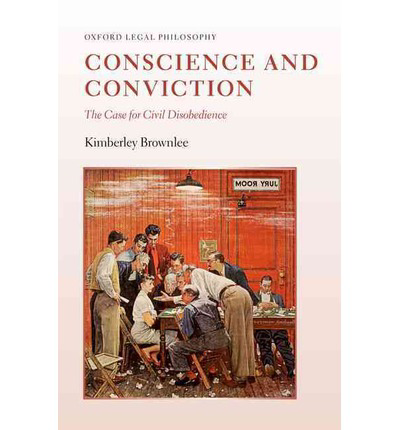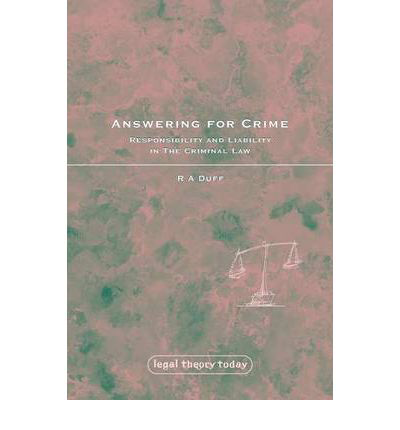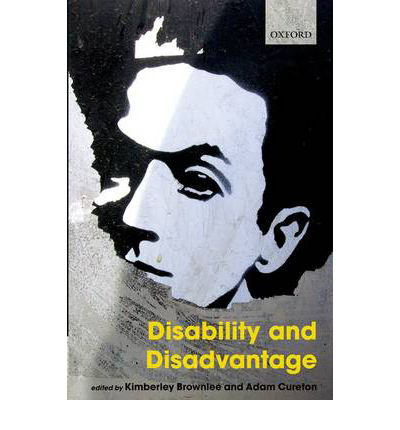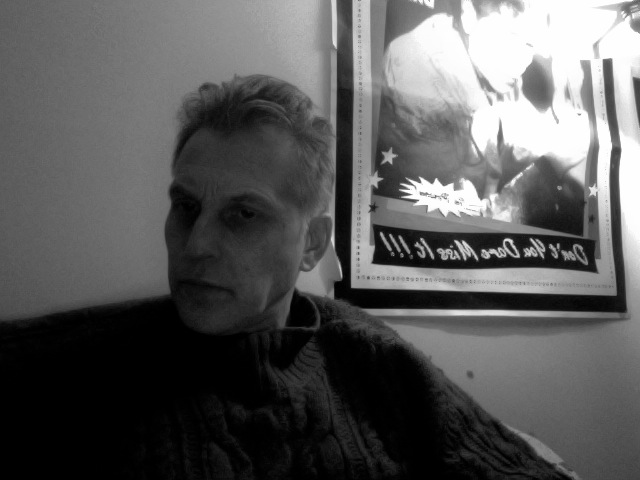Conscience and Conviction
Kimberley Brownleeinterviewed by Richard Marshall.

Kimberley Brownlee is the philosophical jig-jiving jaw-jaw of civil disobedience. She is always thinking about conscience and conviction, Rawls's narrow views, Raz's wider ones, her reversals of the standard liberal picture, her rejection of moral conviction as passion, of the good reasons for a defence of civil disobedience, about the difference between conscientious objection and civil disobedience, of the role of the state and its offices, of punishment, of the missing voice of offenders and of the ethics and law regarding social deprivation. All in all, she's kickin' ass from the right end of our troubling times. Snazzy!
3:AM:What made you become a philosopher? Were you always asking tricky questions?
Kimberley Brownlee:Although I’ve always been interested in who we are and how we should live, I didn’t know what Philosophy was until my final years of high school in the International Baccalaureate (IB) programme. I had a special teacher for the compulsory Theory of Knowledge course, who was fond of asking: ‘How do you know?’ at disconcerting moments. He was also entirely irreverent and spontaneous in his teaching methods. He held seminars on the roof of the classroom (until we were told by the administrators to get down), and he held seminars where we faced the outer walls instead of each other to see if this would hinder or enhance discussion. From him, I learned about some famous thought experiments in philosophy, such as Nozick’s experience machine, the brain in a vat, and the trolley problem, and I was hooked for life.
3:AM:Your new book presents the case for civil disobedience in terms of conscience and conviction. Before saying what your approach is, could you first say something about traditional liberal approaches to this issue? Is Rawls the key figure in this?
KB:Henry David Thoreau coined the term ‘civil disobedience’ in the late 1840’s to describe his refusal to pay the state poll tax that was funding the Fugitive Slave Law and the US government’s war in Mexico. Although Thoreau gave us the term, his own breach of law is not a paradigm case of civil disobedience as we understand it since his act was less aimed at changing the law than paradigm cases are. Some paradigm cases of civil disobedience from the Civil Rights era are Rosa Parks's refusal in 1955 to give up her bus seat, the Woolworth’s lunch counter sit-ins in the early 1960s, and the 1963 Birmingham marches led by Martin Luther King Jr. The most influential account of civil disobedience in the liberal tradition is John Rawls’s distinctively narrow account, outlined in A Theory of Justice(1971). Rawls defines ‘civil disobedience’ very narrowly as a public, non-violent, conscientious breach of law taken with the aim of bringing about a change in law or policy while at the same time maintaining a broad fidelity to the legal system. On this definition, someone like Mahatma Gandhi did not engage in civil disobedience because he had revolutionary aims that lacked fidelity to British rule in India. And, on this definition, someone like Nelson Mandela did not engage in civil disobedience either because he advocated constrained forms of violence such as sabotage. Finally, on this definition, someone who sneaks into a research lab to release animals does not engage in civil disobedience even if she publicizes it afterward because her act lacks the distinctive publicity of forewarning authorities of her intended disobedience.

Rawls is equally narrow in his views on when civil disobedience is justified and when we have a moral right to use it. Rawls says that, in a just society, there is a right to civil disobedience only when our act satisfies three conditions for justifiability: 1) it responds to substantial injustice, 2) it is taken as a last resort, and 3) it is done in coordination with other minority groups. Rawls has been criticised, rightly, for not properly distinguishing his account of justified civil disobedience from the civil disobedience we have a right to take. And, he has been criticised for not explaining how to extrapolate his account from the ideal, just society to our messy, non-ideal, real societies. In the real world, it’s a lot to ask of someone like Martin Luther King Jr that he coordinate with other minority groups when those groups ask him to wait for a ‘better season’.
Joseph Raz defends a broader account of civil disobedience that does not restrict the acts that can be protected by a right. Instead, Raz rejects the idea that this right exists in all societies. He says that only in an illiberal society is there a right to civil disobedience and this right is reserved for those people whose rights to political participation are violated. They have a right to reclaim that portion of their political participation rights that are not recognised in law. So, in Martin Luther King Jr’s America, black Americans had a right to civil disobedience, but white Americans did not even if they supported the same causes. In a liberal society, there is no right at all to civil disobedience, Raz says, because the law adequately protects our rights to political participation. What Raz’s view ignores is that civil disobedients might not be criticising the law for outlawing their action, but instead doing the best they can to honour their conscientious moral convictions. Standard liberal theories say that civil disobedience is less conscientious and less defensible than private, non-communicative ‘conscientious’ objection.
Conscientious objection is associated with pacifism (dating from the First World War), but is also practised in healthcare, education, retail work, and so on. Examples include the doctor who refuses to perform abortions and the religious grocery store clerk who refuses to process the sale of alcohol or to wear or not wear certain clothing in public. Unlike the civil disobedient, the private objector does not try to persuade others of her view or to change laws. She aims simply to act as she believes she ought to act. In standard liberal theory, private objection is seen as a modest, unassuming act of deep personal conviction, and civil disobedience is seen as a strategic, political act whose costs are only sometimes worth bearing. Standard liberal views say that, if there were a general moral right to engage in disobedience on grounds of conscientious conviction, then only private, non-communicative acts would be protected by it.
3:AM:So how does your approach differ?
KB:My account reverses the standard liberal picture and shows that civil disobedience is more conscientious and more defensible than private objection is. As such, civil disobedience has the better claim to the protections that liberal societies tend to give to conscientious breaches of law. True conscientiousness requires not just that we act as we think we ought to act, but also that we be willing to be seen to hold the views we have. We must be willing to communicate our views to others and to bear the costs for our dissent. This is what I call the communicative principle of conscientiousness. The person who disobeys the law privately or evasively raises a doubt about the sincerity of her convictions since she is unwilling to be seen and to engage others in deliberation about her cause. In addition, I argue that there is a general moral right to engage in civil disobedience and this right is not limited either to people who are justified in disobeying or to illiberal societies where people have political rights to reclaim. The moral right to civil disobedience is rooted in a humanistic respect for our dignity and agency as reasoning and feeling beings capable of cultivating deep commitments. Respecting dignity and agency requires respecting that genuine moral convictions have a non-evasive and communicative element, which can include constrained, communicative disobedience of law. Indeed, the moral right to engage in civil disobedience entails a moral right against punishment for civil disobedience.
3:AM:You have a pretty stringent approach to conscientious convictions. You don’t allow hot-headed brutal ones. You stress rationality, but don’t insist that they have to be correct or sound don’t you? Wouldn’t that mean that bad morals would be as effective as good ones in avoiding the law?
KB:I reject the idea that moral conviction is a type of passion that can be measured by how all-consuming it is. Such hot-headed, unthinking devotion is best described as an obsession, not a conviction. A genuine conscientious conviction does not have to be factually or morally correct, but it does have to pass some logical and evidential tests. Consider, for example, the religious parents who believe that they can heal their daughter who has curable diabetes through prayer alone even though the evidence is that she is dying, and even though they would have taken her to a doctor had she broken her leg. Their belief fails the tests of logical coherence and minimal evidential satisfactoriness. Hence, it is not a genuine conscientious conviction, and it cannot exempt them from ordinary expectations of decent childcare. It’s true that, in my view, people with morally bad views could escape legal consequences for their civil disobedience if their views are genuinely conscientious. The reason rests on the principle of humanism noted above that society has a duty to honour our human dignity and autonomy by recognising that we’re reasoning and feeling beings capable of forming deep moral convictions which are, by nature, non-evasive and communicative. It follows that society and the law place too much pressure on us when they coerce us always to put the law before our deep convictions. If our convictions are genuinely conscientious, and if we defend them through suitably constrained methods of civil disobedience, then the law should not impose punitive sanctions on us.
3:AM:How would you deal with convictions rooted in faith communities rather than rationality? And further to this, aren’t you making too much of rationality. Don't sometimes we have to act out of desperation or fear or an unproven suspicion?
KB:Someone who believes something on the basis of divine revelation would have to show why we should accept a belief because it is acquired through a certain process rather than because it has a certain content. This would be difficult to show, but not impossible. My account puts only modest constraints on the kinds of beliefs that can be genuinely conscientious. Indeed, my account is more inclusive than standard liberal views are. I say that the staunch anti-abortion activist can be just as conscientious as the environmentalist or the animal rights activist because what matters is that they are sincere, serious, consistent, non-evasive, and communicative in ways that are respectful of their audience as people they seek to persuade of their views. This kind of respect requires that the anti-abortion activist use highly constrained breaches of law that try to engage others in reasoned deliberation about her cause and not to coerce them into accepting it through bombings, killings, threats, or other extreme tactics. It is true that the constraints on the methods of true civil disobedience demand a certain reasonableness from disobedients. They have to aim to communicate with others at the level of reason. But, this demand is not a constraint on the content of their beliefs. And, it’s a demand that disobedients should want to meet since they should want to be able to show that their view is sufficiently credible that reasoned arguments can be given in its defence.
3:AM:How do you characterise conscience in this?
KB: A key aim in my book Conscience and Conviction is to distinguish the two concepts in its title. Although the terms ‘conscientious conviction’ and ‘conscience’ are similar, the concepts they pick out are quite different. Conscientious moral convictions are necessary for conscience because they show that we take morality seriously. But, they’re not enough for conscience because our convictions can be mistaken. Conscience, by contrast, is genuine moral responsiveness and understanding. The more we have of it, the better we understand what really matters morally. People like Mahatma Gandhi and Aung San Suu Kyi exemplify true conscience. Gandhi was an extraordinary figure in 20th century history, whose non-violent, non-hating resistance of British rule in India achieved remarkable political change and gave us an enduring model of serene goodness. He was someone who could say truly ‘My life is my message.’ The same might be said of Aung San Suu Kyi, the leader of the National League for Democracy in Burma, who was inspired by Gandhi to adopt a stance of non-violent, non-hating resistance against the brutal dictatorship in Myanmar/Burma and who endured the better part of 20 years under house arrest between 1989 and 2010 in isolation from her family.
In the book, I situate conscience within a pluralistic moral framework, and show that, even though we cannot have unequivocally right answers to many moral questions, we can nonetheless cultivate both an inward moral knowledge of the workings of our own mind and heart and a rich practical set of moral skills to make morally justifiable decisions.
3:AM:So what are good reasons for legal defence in cases of civil disobedience?
KB:I argue for two legal defences for civil disobedience. The first is a legal excuse and is available, in principle, for any act of civil disobedience. This excuse is called the demands-of-conviction defence. It is rooted in the humanistic principle of respect for dignity and agency that I mentioned above. By recognising a demands-of-conviction defence, society would honour the links between autonomy, psychological integrity, and conscientiousness. It would do this by not forcing us either always to put the law first before our deep commitments or always to be surreptitious when we distance ourselves from laws we oppose. Since truly conscientious breaches of law are non-evasive and communicative, this legal excuse applies more readily to civil disobedience than to private objection.The second legal defence for civil disobedience is a legal justification. It is a necessity defence rooted in a needs-based notion of necessity and is available only for those acts of civil disobedience that are driven by true conscience.
This defence is not available to bigots, xenophobes, and misguided do-gooders. We can claim necessity when our civil disobedience is animated by a legitimate concern for people’s non-contingent basic needs and rights. Those needs include brute survival needs as well as fundamental humanistic needs of political recognition, social inclusion, and respect. For example, we could plead necessity if we engage in civil disobedience to defend the basic rights of prisoners not to be subjected to degrading, cruel, and inhumane conditions.
3:AM:At a time when organised labour and the rights of the poor, for example, are diminishing, your views seem very important. How possible is it for public officials like soldiers or the police to take stands supporting civil disobedience when so much seemed stacked to wipe it out?
KB:In general, liberal societies could take a harsher stance than they tend to take toward evasive ‘conscientious’ objectors. And, they should take a far less harsh stance than they sometimes take toward civil disobedients. To achieve this, individual officials could take a closer look at the underlying moral responsibilities that animate their own offices and consider whether civil disobedience is sometimes the only legitimate course of action for them when they’re expected to act contrary to those moral responsibilities. In my book, I discuss the case of two UK community support police officers (CSOs) who tried to save a child who was drowning in a pond, not by attempting a rescue, but by radioing for a trained emergency crew to come to the scene as their professional code required. In the interim, the child died. While the officers were praised by their superior for following proper procedure, they were censured by their community and by former Home Secretary David Blunkett, who said that, 'What was appropriate in this circumstance for a uniformed officer would be appropriate for CSOs as human beings, never mind the job.'
In my view, the CSOs should also have considered their special moral responsibilities as CSOs. They should have considered not the rulebook, but their responsibilities to protect the members of their community. If police officers, soldiers, and other lower-level officials are willing to question the formal demands made of them, then they are in a better position to be responsive to the civil disobedience of others including that of ordinary citizens.
3:AM:Locke thought that we could go against the sovereign state if property rights were no longer protected. Hobbes thought we could fight the state if it no longer protected us. Isn’t your moral argument just another way of undermining the sovereign state and supporting a neo-liberal agenda, which is clearly not what you would intend?
KB:In Conscience and Conviction, I argue that the state and its offices have an important role to play even though their norms and dictates do not have absolute priority. The formal, interlocking web of public offices that a reasonably good society sets up are normatively important because they identify broadly the limits of persons' spheres of responsibility when the system is working well. A reasonably good society is one that tries to set up offices to deal with major issues, such as crime and war, that do not place unduly heavy moral burdens on any would-be occupants of those offices. Unduly burdensome offices not only are unjust to their holders, but also make break downs in official function more likely. I call this the minimum moral burdens principle. For example, in US states such as California, the office that doctors were asked to play in overseeing executions by lethal injection fails the minimum moral burdens test because doctors were asked not just to reduce the condemned person's suffering, but also to intervene to facilitate death if the person wakes up. This task deeply conflicts with doctors’ special responsibilities as healers and carers to promote people’s wellbeing. And, it’s no solution to this kind of problem to set up a special medical office of ‘execution overseer’ because that office would be, by nature, unduly morally burdensome for any would-be occupant.
When fundamentally important moral roles are formalised into decent offices to address the biggest problems of our society, and when the holders of these offices honour their moral responsibilities largely as they should, then all occupants must respect the efforts of their colleagues and not seek to do each other's jobs. When, however, some people do not fulfil the moral responsibilities that are theirs in virtue of the roles that underpin their offices, this affects others' moral responsibilities. It widens the gap between formal expectations and genuine moral responsibilities, and can make conscientious refusal and civil disobedience the only morally acceptable courses of action.

3:AM:You’ve written about the offender’s part in the dialogue of crime and punishment. Is this a voice that is missing?
KB:Yes, the offender’s voice is missing in the theory and practice of punishment. One influential theory of state punishment is the communicative theory of punishment. The best-known version of it, defended by Antony Duff, says that, in a liberal society, punishment is the state’s effort to engage an offender in a moral dialogue about his conduct. The justification for punishment here is backward-looking. As a society, we look at the wrong done and we see the appropriateness of publicly communicating condemnation of it. Punishmentis essentially a secular form of penance that vividly confronts the offender with the nature and effects of his crime. My complaint is that, although this theory shows that punishment is communicative, it does not show that it is dialogic. The theory falls prey to what I call the Scripting Problem.
Punishment requires an offender to undergo the public ritual of apology and penance with its expected expressions of grief and remorse irrespective of his attitudes toward the judgement on him. This kind of forced response not only fails to respect the offender as a person and a citizen, but also fails to satisfy a plausible set of conditions for genuine moral dialogue. In a genuine dialogue, the state would be responsive to the offender’s stance toward his punishment. This leads to another problem, which I call the Generic Script Problem. Some offenders – such as repentant offenders and civil disobedients – should not want to follow the formal script of apology because they differ relevantly from unrepentant offenders. The formal script assigned to offenders by the state signals growing awareness and remorsefulness for wrongdoing as well as apology and commitment to reparation. This script misrepresents those offenders who are repentant prior to punishment. It misrepresents them as being unrepentant offenders who need to go through the punishment ritual to come to appreciate the wrong they’ve done. And, it also misrepresent civil disobedients as being unrepentant or perversely defiant when in fact civil disobedients are trying to engage society in a dialogue different from that ostensibly pursued by punishing them.
A third problem is what I call the Status-Change Problem. When the state condemns someone, it engages in a performative act. It changes that person’s legal and moral status in the same way that a minister changes two persons’ legal and moral status when she says ‘I now pronounce you husband and wife’. If the state is not responsive to the offender’s communicative efforts about his punishment, then the performative act of condemning him alters his status in a way that undermines the conditions for genuine moral dialogue.
3:AM:What role should offenders have?
KB:Offenders should have opportunities to respond to the state’s condemnation and to communicate to victims and society the attitude they take toward the apology ritual of punishment. If an offender is fully repentant prior to punishment, then she should not be misrepresented as needing to undergo the full process of punishment to be brought to repent. There may be other reasons for her to accept punishment, such as to show through deeds and not just speech that she is committed to repairing relations with her victim. But, she should have a forum to communicate her repentant attitude, and the state should be responsive to that by imposing a less harsh punishment on her since part of the aims of punishment have already been achieved in her case. Similarly, the civil disobedient should be given a forum in which to signal that she differs from ordinary offenders. She should not be misrepresented as being merely defiant when she actually seeks to engage society in a dialogue.
3:AM:Social deprivation is now an endemic and increasingly virulent blight in societies all over. Is social deprivation a key context for your thinking about legal matters?
KB:My interests in communication and sociability are leading me now to explore the ethics of sociability and, in particular, the merits of social human rights. Debates about human rights tend to neglect social rights. By ‘social rights’, I do not mean economic rights, such as basic subsistence, health, and education, which have received considerable attention. Rather, I mean the rights that protect our fundamental interpersonal, associative, and community-membership needs regardless of our economic circumstances. My current book project, provisionally titled, No Entry: The Evils of Social Deprivation, tries to remedy the neglect of our fundamental social needs and rights. Within the category of social human rights, there is a fundamental, but unacknowledged right, which I call the human right against social deprivation. By ‘social deprivation’, I do not mean poverty, but a persisting lack of minimally adequate opportunities for decent human contact. Social deprivation is a common experience for people subjected to long-term medical quarantine or solitary confinement in prison. It is also a common experience for people whose principal forms of social interaction are degrading and cruel.

Neurological studies by John T. Cacioppo and others indicate that chronic loneliness, understood as perceived social isolation, generates anxiety-inducing physiological threat responses known as the ‘fight or flight’ response. Studies associate chronic loneliness with obesity, the progression of Alzheimer’s disease, increased vascular resistance, elevated blood pressure, diminished immunity, reduction in independent living, alcoholism, depression, suicidal ideation and behaviour, and mortality in older adults. In the most extreme cases of isolation, such as coercive isolation in long-term solitary confinement where people are forcibly denied access to human contact, people tend to suffer hallucinations, self-mutilation, psychosis, and suicidal ideation and behaviour.Coercive social deprivation is the most extreme variant of a more general, pervasive phenomenon of social isolation that includes people, many of whom are elderly or disabled, who are chronically, acutely lonely and unable to remedy their situation. Such severe unwanted loneliness is an important concern, particularly in western societies, given aging populations and the individualistic bent of Western culture and policymaking that threatens social support structures.
3:AM:How should the law change in response to deprivation? Are there signs that the law has noticed this context, or is it business as usual?
KB:For a start, state institutions should not be allowed to use socially privative forms of detention. If the immigration, healthcare, and criminal justice systems use solitary confinement in their detention facilities, then they are guilty of social human rights violations. More broadly, the state should pay attention to the incidental and chronic loneliness of disadvantaged and vulnerable groups of people such as elderly people, people with disabilities, and immigrants.
3:AM:And finally, for the readers here at 3:AM, are there five books (other than your own) which you’d recommend we should read to get to grips with these issues?
KB:For discussions on civil disobedience, Hugo Bedau’s collection Civil Disobedience in Focus(Routledge, 1991) is a useful compilation of seminal papers in the liberal tradition. For discussions on human rights, I turn again and again to James Nickel’s Making Sense of Human Rights(2nd ed., Blackwell, 2006); Henry Shue’s Basic Rights(2nd ed., Princeton University Press, 1996); and James Griffin’s On Human Rights(Oxford, 2008). For a rewarding discussion on punishment, I recommend Antony Duff’s Punishment, Communication, and Community(Oxford, 2001).
 ABOUT THE INTERVIEWER
ABOUT THE INTERVIEWER
Richard Marshallis still biding his time.